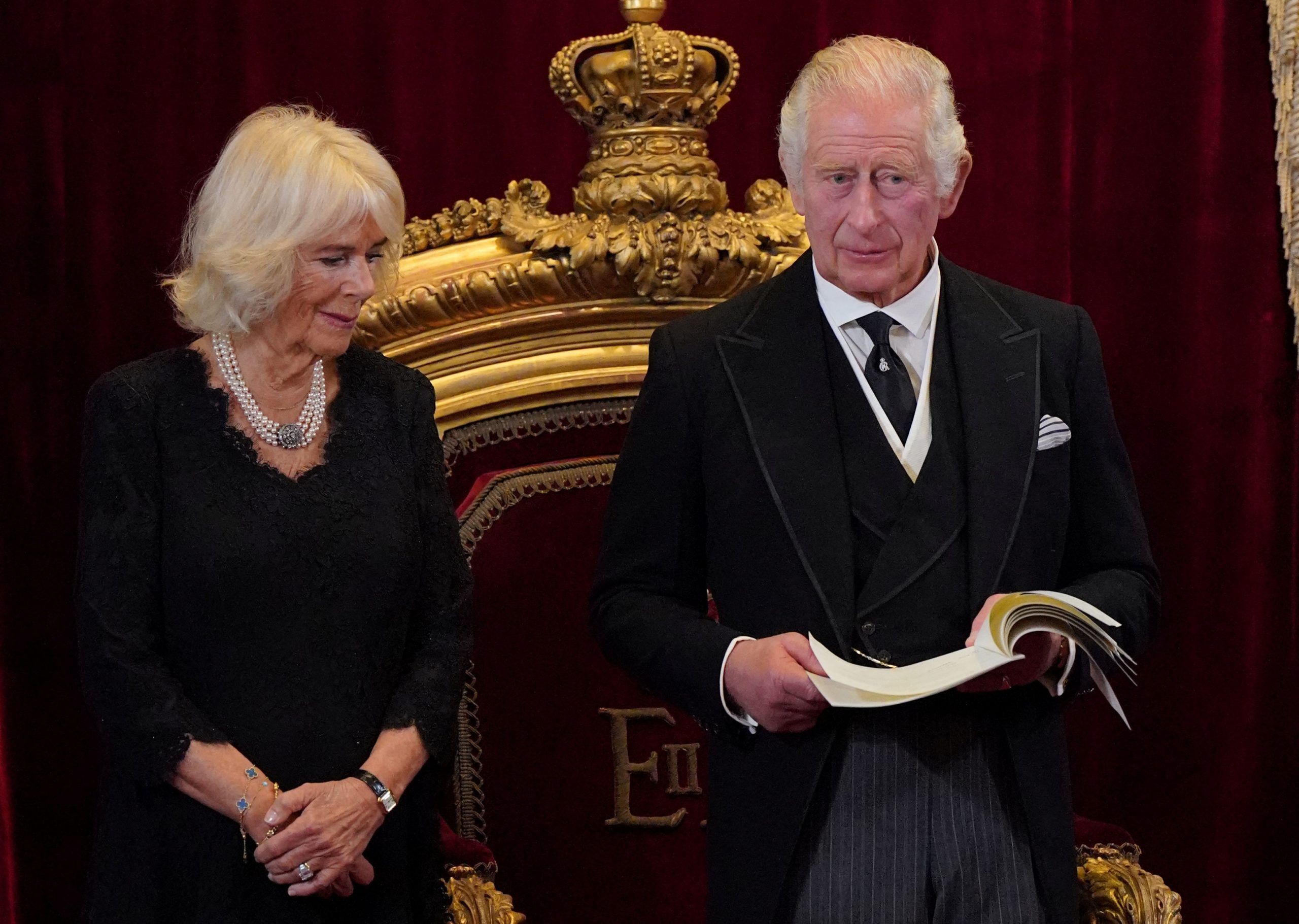
Lauren C. Moye, FISM News
[elfsight_social_share_buttons id=”1″]
King Charles III was proclaimed Britain’s new monarch in a ceremony that hasn’t been witnessed by the majority of people alive today. The transition comes during a time of national upheaval, including a newly installed Prime Minister, and leaves questions about the future of both the country and monarchy.
“Whereas it has pleased almighty God to call to his mercy, our late sovereign lady, Queen Elizabeth the Second of blessed and glorious memory, by whose decease the crown of the United Kingdom of Great Britain and Northern Ireland, is solely and rightfully come to the Prince Charles Philip Arthur George,” David White, the Garter King of Arms, proclaimed from the balcony above the St. James Palace’s Friary Court.
The reading of the Principal Statement was followed by three cheers from the soldiers and witnessed by a few hundred onlookers. It was only one part of the ceremony that formally marked the ascension of a new king.
“My Mother’s reign was unequaled in its duration, its dedication, and its devotion. Even as we grieve, we give thanks for this most faithful life,” the new monarch said during his personal declaration made earlier in the day. “I am deeply aware of this great inheritance and of the duties and heavy responsibilities of Sovereignty which have now passed to me.”
The late queen reigned for 70 years and holds the distinction of being the longest reigning monarch in Britain’s history. Charles was only three years old at the time she ascended to the throne.
She became a symbol of stability for the nation as she guided the monarchy into a new era. Her death on Thursday begs the question of what is ahead for the nation now. While the nation itself largely desires to retain its monarchy, it’s unclear how much of that good opinion was earned by Elizabeth’s presence and public service.
Each year, the British Social Attitudes Survey gathers public opinion concerning the continuation of the monarchy. Over 60% of Brits consistently vote it as “very important” or “quite important.” Those who favor the abolition of the throne have never risen above 20% in the roughly 40 years the poll has asked the question.
However, while Elizabeth ranked as the most popular British royal in a recent YouGov poll, the new king and the Queen-consort Camilla fall in 7th and 8th place overall with only 42% and 40% popularity respectively.
Meanwhile, Britain as a whole takes increasingly hostile condemnation for its historical role in colonization. As the ruling class, the royal family is the current figurehead for this criticism.
As king, Charles will have to continue to garner public support for the throne and maintain unity among the commonwealth nations, including the 14 Commonwealth Realms that list the ruling monarch as their head of state. This includes Canada, Northern Ireland, Australia, and South Africa. Not all of these self-ruling nations will support the new monarch as their formal head of state.
“In taking up these responsibilities, I shall strive to follow the inspiring example I have been set in upholding constitutional government and to seek the peace, harmony, and prosperity of the peoples of these Islands and of the Commonwealth Realms and Territories throughout the world,” Charles vowed earlier today.
It’s the second major transition in a week for the U.K. On Monday, the nation gained a new Prime Minister after Liz Truss won the vote.
